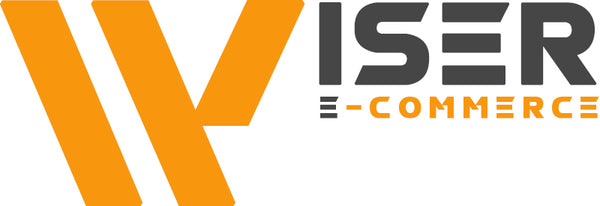
Shopify vs Woo: Which is Best for Your Business?
Imagine this: you’ve got a brilliant idea for an online store. You’re excited, motivated, and ready to bring your products to the world. But then, you hit a roadblock—choosing the right e-commerce platform. The two biggest names that pop up? WooCommerce and Shopify. Which one should you go for? As experts in e-commerce design and development, we at Wiser E-Commerce have worked with both platforms, and we’ve seen first-hand why Shopify is often the best choice for small and medium-sized businesses looking for a balance of simplicity, flexibility, and scalability. Here’s why.
Starting Your E-Commerce Journey: A Strong Foundation Matters
Think of setting up your online store like opening a physical shop. Would you rather move into a fully equipped, well-designed space that’s ready to trade, or start from scratch, organising every fixture and system yourself? That’s the difference between Shopify and WooCommerce.
- Shopify provides an all-in-one solution with hosting, security, and pre-built design options. It’s like getting a prime retail location with a modern shop fit-out—you can focus on branding and selling rather than technical setup.
- WooCommerce is like leasing an empty space. It offers great flexibility, but you’ll need to arrange hosting, security, and development work to get it running. If you have technical expertise or a dedicated team, this might not be an issue, but for many business owners, it can be a challenge.
Winner: Shopify – It gives business owners a strong starting point without sacrificing professional customisation options.
Design and Customisation: Your Store, Your Brand
Your website is your digital storefront. It needs to look professional, be easy to navigate, and reflect your brand identity.
- Shopify offers a vast library of high-quality, mobile-optimised themes, with plenty of customisation options. While Shopify’s built-in tools make it easy to create a great-looking store, businesses with unique requirements can still benefit from professional design and development to tailor the experience to their brand.
- WooCommerce offers unlimited customisation since it’s open-source. However, this often requires extensive coding knowledge or hiring a developer to achieve a polished and high-converting design.
Winner: Both – Shopify makes it easier to launch with a beautiful design, but WooCommerce allows deep customisation for those willing to invest in development.
Managing and Growing Your Business: Efficiency is Key
Your time is valuable, and how you manage your store’s operations can make or break your success.
- Shopify streamlines the day-to-day management of your store with built-in tools for inventory, order tracking, marketing, and analytics. Because Shopify handles updates and security, you can focus on growing your business rather than fixing technical issues.
- WooCommerce offers flexibility but requires more hands-on management. Security, plugin updates, and performance optimisation are your responsibility, and as your store scales, managing these aspects can become increasingly complex.
Winner: Shopify – Less time spent on maintenance means more time for growth.
Seamless Integration for Physical Stores
If you run a brick-and-mortar store, having an online presence is no longer optional—it’s essential. Shopify makes this transition seamless with Shopify POS (Point of Sale), allowing you to integrate your online and offline sales effortlessly. Whether you sell in-store, at events, or pop-up shops, Shopify POS syncs inventory, customer data, and sales in real-time. This eliminates the hassle of managing separate systems and ensures a smooth shopping experience for your customers.
With WooCommerce, adding POS functionality requires third-party plugins, which may not always integrate as smoothly, leading to potential inefficiencies.
Winner: Shopify – A truly unified solution for omnichannel retailing.
Scalability: Thinking About the Future
Many small businesses start with a handful of products, but what happens when you grow? You need a platform that can keep up.
- Shopify is built for scalability. Whether you’re selling 10 products or 10,000, Shopify’s hosting and infrastructure handle it all. With built-in integrations for social media, marketplaces, and point-of-sale systems, Shopify grows with your business.
- WooCommerce relies on your hosting provider. As your store expands, you may need to upgrade servers, manage caching, and troubleshoot performance issues. This requires more technical oversight as you scale.
Winner: Shopify – No need to worry about hosting limitations or technical bottlenecks.
Support and Troubleshooting: Help When You Need It
Shopify vs WooCommerce: Which is Best for Your Business?
E-commerce never sleeps, and when issues arise, having access to fast and reliable support is critical.
- Shopify provides 24/7 support via chat, phone, and email, ensuring you get help when you need it.
- WooCommerce relies on community support, documentation, and third-party developers. While helpful, it can be slower and require more effort to find the right solutions.
Winner: Shopify – Reliable support can save time, stress, and lost revenue.
The Smart Choice for Growing Businesses
We’ve helped businesses at every stage of their e-commerce journey, and we know that the right platform depends on your specific needs. WooCommerce is a strong choice for those who want complete control and have the resources to manage it. However, for most small and medium-sized businesses looking for a streamlined, secure, and scalable solution, Shopify is the smarter investment.
At Wiser E-Commerce, we don’t just recommend Shopify—we help businesses make the most of it. Whether you need a custom-designed Shopify store, expert development work, or tailored integrations to enhance your site, our team is here to support your growth.
Ready to take your e-commerce business to the next level? Get in touch with us today, and let’s build something great together.
